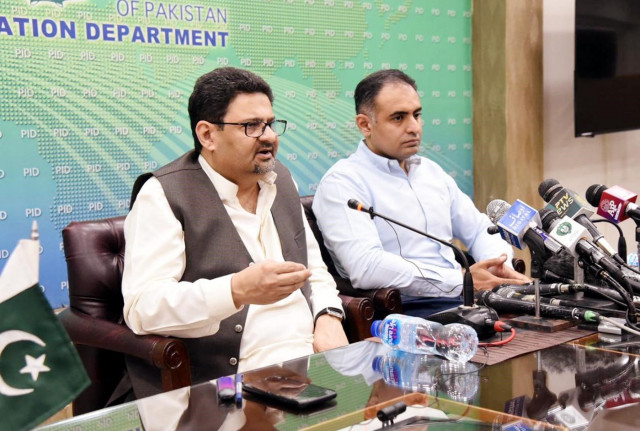Country’s economic woes are ‘temporary’
Finance Ministry, SBP say in joints statement issues have been addressed forcefully

Pakistan’s economic problems were temporary and being forcefully addressed, the Finance Ministry and the State Bank of Pakistan (SBP) said in a joint statement late on Sunday.
The statement titled ‘Pakistan’s Strategy for Navigating FY2023: Five Important Facts’ said that the country’s foreign exchange reserves had fallen since February because the foreign exchange inflows were outpaced by the outflows.
“The paucity of inflows has happened in large part due to the delay in completing the next review of the IMF programme, which has lingered since February due to policy slippages,” it said. “On the outflows side, debt servicing on foreign borrowing has continued as repayments on these debts have been coming due over this period,” it added.
“The formal [IMF] Board meeting to disburse the next tranche of $1.2 billion is expected in a couple of weeks. At the same time, macroeconomic policies—both fiscal policy and monetary policy—have been appropriately tightened to reduce demand-led pressures and rein in the current account deficit.”
The statement said that in the current fiscal year, the country’s gross financing needs would be fully met under the ongoing IMF programme. “In order to bolster foreign exchange reserves position, it is important for Pakistan to be slightly overfinanced relative to these needs.”
According to the statement, an extra $4 billion cushion was planned over the next 12 months. Besides, important measures had been taken to contain the current account deficit, the statement said, adding that temporary measures had been taken to contain the import bill.
“These measures are working: the import bill fell significantly in July, as energy imports have declined and non-energy imports continue to moderate. Foreign exchange payments in July were significantly lower than in June. This is true for both oil and non-oil payments,” it said. “Altogether, payments were a sustainable $6.1 billion in July compared to $7.9 billion in June.”
The statement said that the recent rains and storage of water in the dams would increase hydroelectricity, which would reduce the fuel import bill. It added that the rupee had overshot temporarily but it was expected to appreciate over the next few months.
The joint statement debunked the rumours that a particular level of the exchange rate had been agreed with the IMF. “We fully expect the rupee to appreciate. Indeed, this was the experience during the beginning of the IMF programme in 2019, when the rupee strengthened considerably.”
Earlier, Finance Minister Miftah Ismail told a news conference in Islamabad on Sunday that he hoped that Pakistan would see the pressure on rupee ending from August.
Responding to a question, Miftah admitted that after the July 17 Punjab by-polls, the dollar had gone out of control and appreciated. However, he added that he “truly believed” in the “true value of the rupee” being “far greater than this”.
Responding to another question, Miftah said: “My number-one priority has never been to control inflation or to bring growth. My priority has only been to save Pakistan from default.”
The minister claimed to have achieved this feat earlier this week too, as an increase in the inflow of foreign currency was expected in the next quarter. The minister remained cautious in his optimism, however.
Lambasting the previous PTI government, Miftah said in four years, the party could not reach the tax-to-GDP ratio of the PML-N government. “We had left it at 11.1% and the PTI took it to 9%,” he pointed out.
Miftah also placed the onus of increases in circular debt on Imran’s government, adding that it had more than doubled from $1.1 billion to $2.5 billion The minister also announced tax relief for shopkeepers using less than 150 units of electricity.



















COMMENTS
Comments are moderated and generally will be posted if they are on-topic and not abusive.
For more information, please see our Comments FAQ